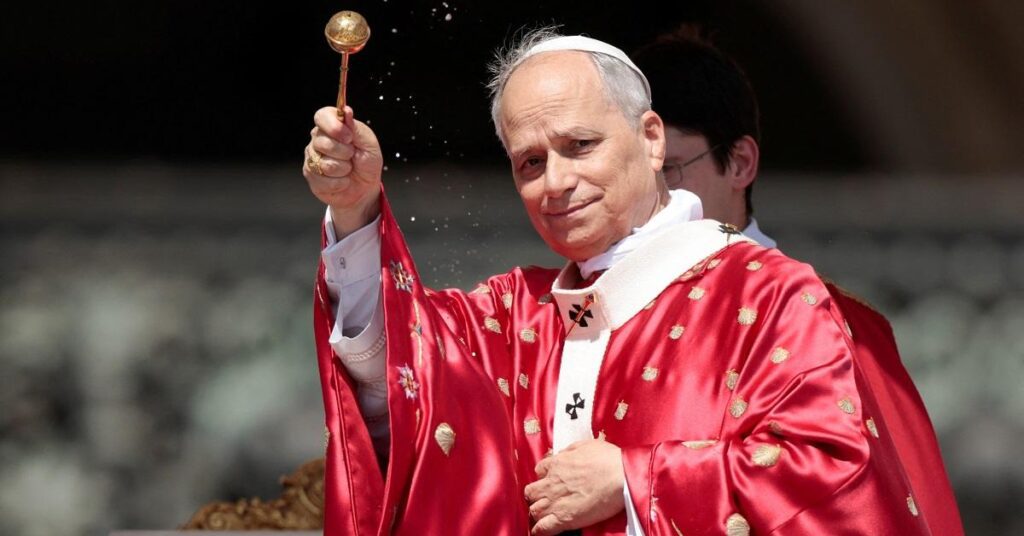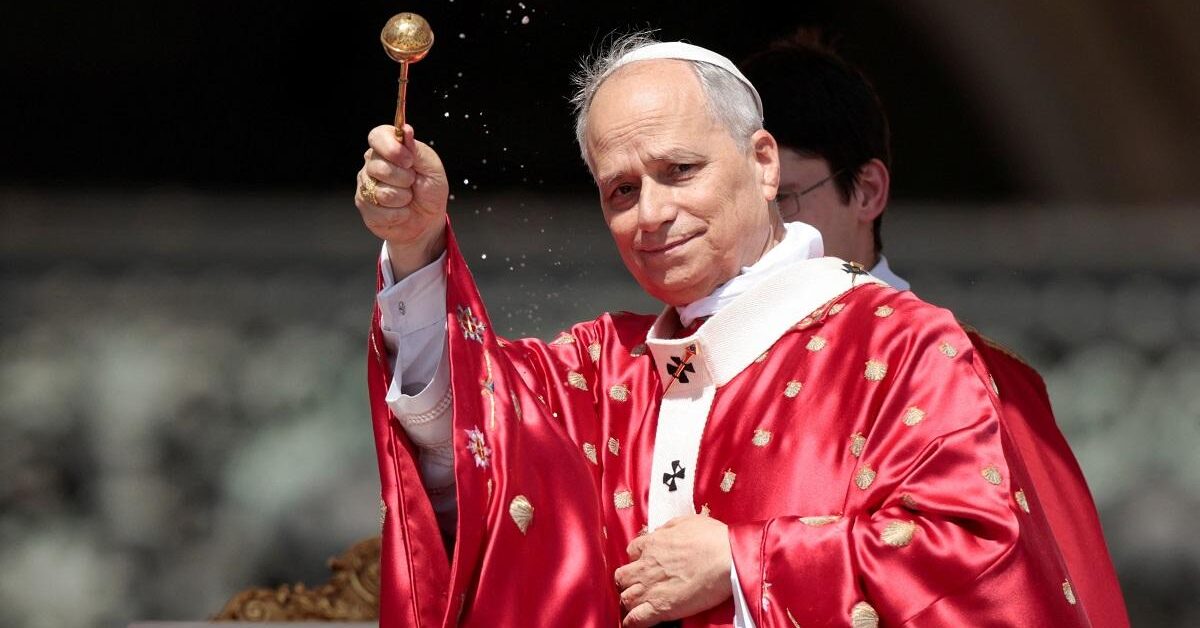A Watershed Moment at St. Peter’s Square
On Pentecost Sunday (June 8, 2025), Pope Leo—the first American pontiff in Catholic history—delivered a seismic homily before 80,000 faithful in St. Peter’s Square. Without naming specific leaders, he decried the global rise of “political nationalisms” and their “exclusionary mindset,” demanding divine intervention to “open borders, break down walls, and dispel hatred” . His words reverberated globally, challenging ideologies that prioritize sovereignty over human solidarity.
Table of Contents
The Heart of Leo’s Critique
In his homily, the former Cardinal Robert Prevost targeted nationalist movements for fostering:
- Prejudice and “security zones” dividing communities
- Barriers between class, race, and nations
- An “unfortunate” political shift toward isolationism
He framed the Holy Spirit as a force to “tear down walls of indifference,” explicitly linking Christian duty to rejecting fear of “those who are different” . Though he avoided naming Donald Trump or JD Vance, the allusion to border walls and migrant deportations echoed his predecessor Pope Francis’ condemnation of U.S. immigration policies .
Table: Key Quotes from Pope Leo’s Pentecost Homily
| Theme | Statement |
|---|---|
| Nationalism | “No room for… exclusionary mindset emerging in political nationalisms” |
| Borders & Unity | “Open borders between peoples, break down barriers between class and race” |
| Fear vs. Faith | “Move beyond fear of those who are different” |
Why This Message? Why Now?
Pentecost—marking the Holy Spirit’s descent upon Jesus’ followers—symbolizes unity across linguistic and cultural divides. Leo’s emphasis on this feast was strategic:
- Theological Imperative: He asserted the Church must model “networking” (contrasting digital isolation with spiritual unity) .
- Global Context: With wars in Ukraine and the Middle East, Leo recently offered to mediate between Vladimir Putin and Western leaders .
- Domestic Resonance: As a Chicago native, his critique carries weight in America’s fractured political climate.
The American Pope vs. MAGA Christianity
Leo’s election as a U.S. pope shocked conservative circles. Before his papacy, he openly criticized Trump and Vance on X (formerly Twitter), challenging Vance’s “ordo amoris” theory that Christians should prioritize compatriots over foreigners. Leo countered: “Jesus doesn’t ask us to rank our love” .
MAGA-aligned figures reacted fiercely:
- Sean Feucht (Christian nationalist influencer) called Leo a “calculated, woke, globalist” pope .
- Laura Loomer labeled him a “Marxist puppet” .
Their backlash underscores Leo’s threat to Christian nationalism—a movement merging faith with authoritarian power in the U.S., Hungary (Viktor Orbán), and Brazil (Jair Bolsonaro) .
Table: Popes Francis vs. Leo on Nationalism
| Pope | Key Statements | Target |
|---|---|---|
| Francis | “Building walls, not bridges, is not Christian” (2016) | Trump immigration |
| Leo | Condemns “exclusionary mindset… in political nationalisms” (2025) | Global nationalist movements |

Continuity and Evolution from Pope Francis
Leo’s message extends his predecessor’s legacy:
- Francis branded Trump’s mass deportation plans a “disgrace” in January 2025 .
- Leo, however, broadened the critique beyond the U.S., addressing European nationalists and the “vortex of individualism” fueled by social media .
His unique perspective blends Peruvian pastoral experience (where he served for decades) with American pragmatism, positioning him as a transnational bridge-builder .
Beyond Borders: Leo’s Global Vision
The pope’s vision transcends physical walls. He highlighted:
- Gender violence: Cited Italy’s “tragic femicides” as symptoms of domination culture .
- Digital alienation: Warned against being “constantly connected, yet incapable of networking” .
- Migrant dignity: Symbolically, Francis invited migrants to receive his coffin—a gesture Leo’s policies may expand .
Why Nationalist Leaders Should Take Note
Leo’s papacy threatens authoritarian movements because:
- Moral Authority: As head of 1.4 billion Catholics, his words sway global public opinion .
- Transnational Networks: The Church’s diplomatic reach rivals the UN. Leo has already called Putin to mediate the Ukraine conflict .
- Ideological Counterweight: He rejects the Christian nationalist playbook that “launders authoritarianism through religion” .
What’s Next for Pope Leo?
Watch for:
- Policy shifts: Will the Vatican advocate for migrant amnesty or sanctions against nations violating human rights?
- U.S. visits: As an American pope, his criticism during the 2024 election campaign could reshape Catholic voting blocs.
- Media strategy: His @drprevost X account was deactivated post-election, but he may launch new platforms .
Conclusion: A Papacy of Radical Inclusion
Pope Leo’s Pentecost homily marks a defining moment for the modern Church—a U.S.-born pope repudiating the very nationalism surging in his homeland. His call to “open borders” is not merely political; it’s a theological mandate for unity in an age of fragmentation. As MAGA Christianity and its global allies escalate their rhetoric, Leo’s papacy emerges as a fortress for the vulnerable and a rebuke to power.
“Where there is love, there is no room for prejudice.”
— Pope Leo, Pentecost 2025
External Links for Further Reading:
- Full Text of Pope Leo’s Pentecost Homily (Reuters)
- Analysis: Christian Nationalism’s Global Threat (Religion News Service)
FAQ Section
Q: Is Pope Leo the first American pope?
A: Yes. Formerly Cardinal Robert Prevost of Chicago, he was elected May 8, 2025.
Q: Did Pope Leo mention Donald Trump or JD Vance?
A: Not explicitly, but he critiqued policies associated with them, like border walls and nationalism.
Q: What is the significance of Pentecost for this message?
A: Pentecost celebrates the Holy Spirit uniting diverse peoples—making it an ideal moment to reject division.
